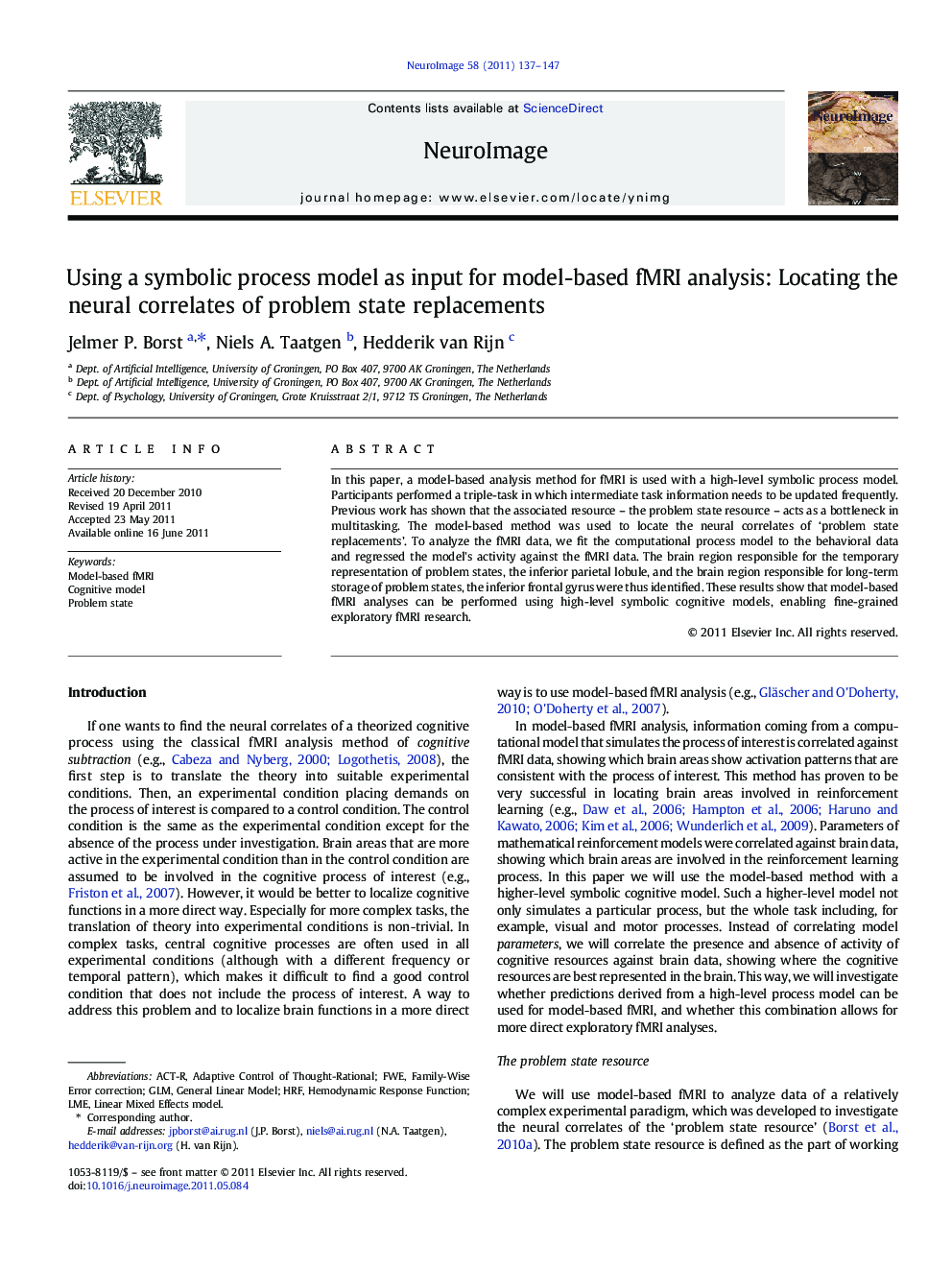| Article ID | Journal | Published Year | Pages | File Type |
|---|---|---|---|---|
| 3072145 | NeuroImage | 2011 | 11 Pages |
In this paper, a model-based analysis method for fMRI is used with a high-level symbolic process model. Participants performed a triple-task in which intermediate task information needs to be updated frequently. Previous work has shown that the associated resource – the problem state resource – acts as a bottleneck in multitasking. The model-based method was used to locate the neural correlates of ‘problem state replacements’. To analyze the fMRI data, we fit the computational process model to the behavioral data and regressed the model's activity against the fMRI data. The brain region responsible for the temporary representation of problem states, the inferior parietal lobule, and the brain region responsible for long-term storage of problem states, the inferior frontal gyrus were thus identified. These results show that model-based fMRI analyses can be performed using high-level symbolic cognitive models, enabling fine-grained exploratory fMRI research.
► Model-based fMRI analysis enables theory-guided exploratory fMRI research. ► Model-based fMRI analysis can be performed with high-level symbolic process models. ► Model-based fMRI can identify brain regions that are critical for multitasking. ► Problem state changes correlate with activity in the inferior parietal lobule. ► Problem states are retrieved from memory via the inferior frontal gyrus.
